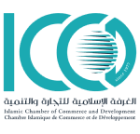ICCIA`s workshop "Microfinance and the Transition to sustainability"
In light of ICCIA`s ongoing efforts to achieve sustainable development in all Member States, we have the honour to announce the successful conclusion of the regional workshop entitled “Microfinance and the Transition to Sustainability”, which was held – in person and virtually – in partnership with the Federation of Egyptian Chambers of Commerce (FEDCOC), and sponsored by Albaraka Forum for Islamic Economy, on Tuesday and Wednesday, 14 – 15 June 2022, at FEDCOC Headquarters- Cairo.

The workshop was held as part of ICCIA`s regional workshop series “Microfinance Directions- Regional and International Experiences”, in the presence of the honourable presidents and high-level representatives from federations and member chambers of more than 14 countries, aiming to raise awareness of the microfinance fundamentals and the importance of its transition towards sustainability, besides discussing ways of addressing the challenges facing the microfinance sector in the Member States, especially those developing ones.
Out of Egypt’s economic and developmental leadership in the African continent throughout history, the “Microfinance and the Transition to Sustainability” workshop tackled, for two consecutive days, means and mechanisms to promote the microfinance sector across the region, as a main pillar and an indispensable approach for achieving a comprehensive, sustainable and equitable development, in addition to ways to support the promising entrepreneurs and start-ups in various countries, through a series of panel and technical sessions that witnessed rich discussions among a selection of the most prominent leaders and experts in economy, development and sustainability from Africa and the Islamic world, in the presence of high-level delegations from several chambers and international organizations

In the presence of hundreds of participants from various states of the world, His Excellency Mr. Abdullah Saleh Kamel, President of the Islamic Chamber of Commerce, Industry and Agriculture, and one of the most important pillars of its success and development, inaugurated the workshop, as he welcomed the presence and delivered the opening speech, in which he pointed out the role of microfinance as an pivotal supporter for entrepreneurs and small enterprises in the developing countries, emphasizing the need to support the microfinance sector across OIC member countries.
His Excellency shed light on the financing formulas that are compliant with Shariah, indicating: “Sharia compliant financing formulas consider microfinance more flexible and expanded than the stereotypical and bank financing of exact requirements, which opens new avenues for the Islamic microfinance that has spread throughout the world”.
Based on ICCIA`s belief in the pivotal role of the Federation of Egyptian Chambers of Commerce in the promotion and development of economic and social life in Egypt, H.E. Dr. Alaa Ezz, Secretary General of the Federation of Egyptian Chambers of Commerce, inaugurated the workshop on behalf of H.E. Eng. Ibrahim Al Arabi, President of FEDCOC and President of the Union of African Chambers of Commerce Industry, Agriculture and Professions (UACCIAP), who stressed on the huge role of microfinance and its tremendous contribution to the development of the African continent, highlighting the necessity to achieve economic integration as an urgent need to face crises and address various challenges facing countries, and contribute to building a better future for the future generations.

In view of the participation of the Organization of Islamic Cooperation in ICCIA`s regional workshop, H.E. Dr. Amina Al-Hajri, Director General of the Cultural Social & Family Affairs – Organization of Islamic Cooperation (OIC), delivered the OIC Secretariat-General Speech on behalf of H.E. Ambassador Tariq Bakhit, Assistant Secretary-General for Humanitarian and Social Affairs – OIC, in which she expressed The Secretariat-General’s appreciation to the role of this workshop in supporting the microfinance sector, noting that the topic of the workshop coincides with one of the most important objectives of the OIC Ten-Year Program of Action 2025, regarding achieving sustainable development. H.E. Dr. Amina Al-Hajri also stressed the need to support the microfinance sector in order to reduce poverty rates and contribute to the promotion of economic growth across the countries of the region.
Striving to enhance the importance of the microfinance sector in achieving sustainable development, His Excellency Mr. Ahmed Bab Ould Aly, President of the Union of Chambers of Commerce and Industry of G5 Sahel countries and The President of the Mauritanian Chamber of Commerce, Industry and Agriculture, delivered his opening remarks at the workshop, during which he emphasized the role of microfinance in eradicating extreme poverty and reducing unemployment rates. His Excellency also pointed out the various possibilities and investment opportunities in the G5 Sahel countries, indicating that Mauritania managed to develop its telecommunications` infrastructure by linking it to many Sahel countries and Europe through a submarine cable that meets international standards.
In this regard, His Excellency addressed the major challenges faced by the G5 Sahel countries in applying the fundamentals of microfinance, praising the “Family Bank” Project, launched by the Islamic Chamber and its tremendous contribution to eliminating vulnerable groups suffering, and the significant steps taken towards launching ICCIA`s project to support microfinance in the G5 Sahel countries.

During the workshop, and in the presence and participation of a selection of the most prominent economic and sustainability leaders from the Islamic world, His Excellency Mr. Yousef Hassan Khalawi, Secretary General of the Islamic Chamber of Commerce, Industry and Agriculture, launched one of the most important projects of the Islamic Chamber, the project of establishing microfinance institutions in the G5 Sahel countries, which comes in the context of its relentless Endeavour to promote the Islamic microfinance sector in the G5 Sahel countries, representing a real model for sustainable investment and partnership between the public and private sectors, contributing effectively and efficiently to the development and prosperity of OIC member countries.
During the announcement of the project launching, His Excellency explained the necessity of microfinance for vulnerable groups to be able to join the economic market, noting that microfinance has become a global trend occupying a pivotal importance in the least developed countries. His Excellency then clarified that the project will be launched from G5 Sahel countries for developmental reasons, followed by the establishment of counterpart projects in the rest of the member states, in preparation for the establishment of an international microfinance institution.

The event witnessed the honorable recognition of the Islamic Chamber, represented in H.E. Mr. Yousef Khalawi, to the Federation of the Egyptian Chambers of Commerce, represented in H.E. Dr. Alaa Ezz, Secretary General of FEDCOC, on behalf of His Excellency Eng. Ibrahim Al Arabi, President of FEDCOC & President of the Union of African Chambers of Commerce, Industry and Agriculture, in recognition of FEDCOC efforts and influential partnership to ensure the success of the event and launch it properly.
H.E. Mr. Ahmed Babe Aleya, President of the Union of Chambers of Commerce and Industry of G5 Sahel countries & President of the Mauritanian Chamber of Commerce, Industry & Agriculture, H.E. Mr. Ibrahim Jokoni, Vice- President of Chad Chamber of Commerce, Industry, Agriculture, Mining and Handicrafts, and H.E. Mr. Ahmed Shamsuldin, President of the Federation of Comoros Chambers of Commerce, Industry and Agriculture, have been honored for their fruitful participation in the workshop and their strenuous collaboration to create a sustainable future for Islamic microfinance in the region.

Micro, Small and Medium Enterprise Development Agency (MSMEDA), one of the major institutions promoting microfinance and entrepreneurship in Egypt, and the concerned authority with the development of small and microenterprises, entrepreneurship, coordination and consolidation of the efforts of all stakeholders, civil societies and initiatives working in this field, participated with us through two consecutive days. The workshop sessions brought two of the most prominent finance experts together, namely: Dr. Rafaat Abbas, General Manager, Non-Financial Service Sector, Micro, Small and Medium Enterprise Development Agency (MSMEDA) and Dr. Ishraq El Sisi, Managing Director of the Banks department – Central Sector for Microfinance.

Based on ICCIA’s deep belief in the importance of fostering the culture of entrepreneurship across its member states, and its tremendous role in supporting economic growth & stability and promoting societies at all levels, inspiring success stories of a selected group of promising entrepreneurs in the field of microfinance was shared, through which we learned about the most significant challenges faced during the application of microfinance fundamentals, and how they overcame them to achieve many distinctive successes.
ICCIA`s regional workshop series, entitled “Microfinance Directions – Regional and International Experiences”, is part of the Chamber’s efforts to develop the microfinance sector in all Member States, as an essential and indispensable element in achieving sustainable development.
In this regard, the Islamic Chamber affirms its serious commitment to achieve sustainable economic and social development throughout the world, and its full readiness to cooperate with all concerned institutions in order to apply best practices in this field, to create a more prosperous and sustainable future for the Islamic world.
About ICCIA:
Islamic Chamber of Commerce, Industry, and agriculture is an international institution affiliated of the Organization of Islamic Cooperation (OIC). It represents the private sector of 57 member countries of OIC, as well as observer members and other associate members from Muslim minorities. ICCIA aims at strengthening cooperation among its member states in the areas of trade, industry, and information technology, and promoting investment opportunities and joint- projects among member states. Its membership consists of national chambers, unions, councils of chambers of commerce and industry in OIC member states.
ICCIA was established based on the decision of the Seventh Islamic Conference of Foreign Ministers, which took place in May, 1976 Istanbul, Turkey. And was adopted by the first conference of chambers of commerce and industry in Islamic world countries, which also held in Istanbul, Turkey in Oct., 1977.
Later, the constitution of ICCIA was passed by the second conference of chambers of commerce and industry in Islamic world countries, which held in Dec., 1978 in Karachi. Its headquarters in Karachi, the economic capital of the republic of Pakistan.
For more information about ICCIA and its upcoming economic projects, kindly visit our website: https://dev.iccdglobal.com , or contact media department via email: news@iccia.com





